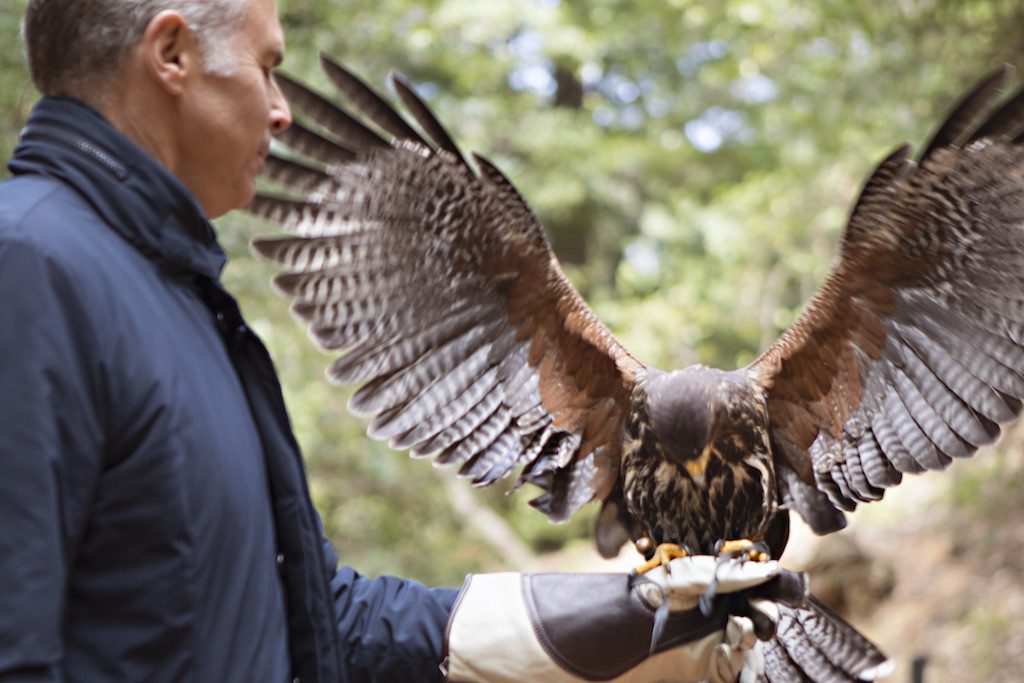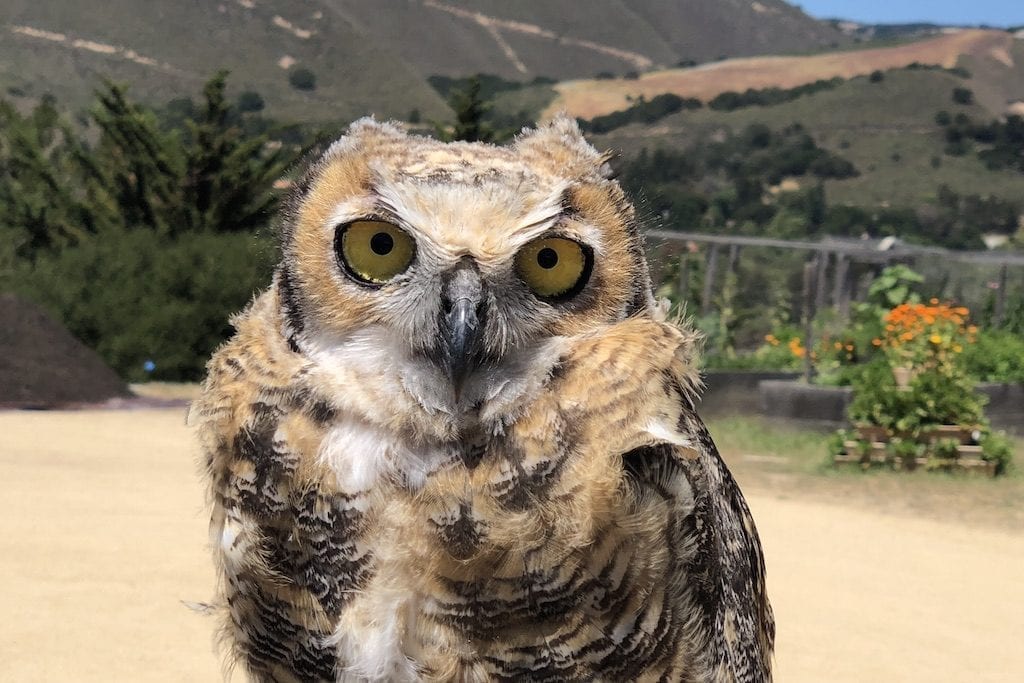Skift Take
Antonio Balestreri's work depends on how well he can educate guests on the role of raptors in the environment, something which gives his presentations a serious edge.
 Every month Skift will profile someone working in the quirkiest, most incredible and surprising jobs in global travel. Skift's relentless curiosity about our industries extends to every corner of the labor market. Who knew jobs like this even existed?
Every month Skift will profile someone working in the quirkiest, most incredible and surprising jobs in global travel. Skift's relentless curiosity about our industries extends to every corner of the labor market. Who knew jobs like this even existed?
In a secluded campground among the redwood forests, overlooking the coast of northern California, Antonio Balestreri, 63, is finally doing what he loves.
He leads the falconry program at Ventana Big Sur, a small luxury resort, as well as at its sister resort Carmel Valley Ranch, about an hour south. During his presentations, he brings a group of people into a clearing among the massive redwoods, where he takes his birds out one by one, describes them, and even lets guests touch them.
“The birds are so fascinating,” Balestreri said, adding that all of his birds are native to North America. “How could you not find these birds the most amazing creatures on the planet?”
Although he has loved birds since he was a child growing up in Monterey, California, he spent most of his life working in construction. After high school, he got a degree in wildlife management but was not able to find a job in the field. It was through a stroke of luck that he connected with Ventana. Two years ago, the resort hired him to build a deck, and the business relationship grew from there.
“People come to Ventana to immerse themselves in nature,” explained Randie Schoenberg, a spokesperson for the resort. Along with glamping and hiking, allowing guests to learn about and interact with birds native to the area helps foster the connection with the environment. “It’s a very quiet, intimate, luxurious experience.”
Meanwhile, the company describes Carmel Valley Ranch as “the ultimate summer camp.” The ranch has local artisans, such as a cheese-maker, and has a bee apiary and chicken pens. “We have an immense amount of interactive programming. So falconry was a natural fit,” Schoenberg said.
Despite the name, Balestreri does not work exclusively with falcons. Instead, he owns many different types of birds of prey, also known as raptors. For example, he has a great horned owl named Ari, the guest favorite.
He also has a Harris’s hawk, which he considers the most intelligent of his birds. At the end of his shows, it is the only one he releases into the trees, allowing it to fly back and land on the falconry gloves he gives guests.
And then of course there is his peregrine falcon. Named Lex — after Lex Luthor, Superman’s archnemesis — it’s the fastest animal on the planet, flying at speeds of over 240 miles per hour.
But his work goes beyond the beauty of the birds.
Balestreri has a falconry education permit, a rare and highly specialized license issued by the federal government, which allows him to earn money through interactive presentations with his raptors — but only if he does it in the name of environmental conservation. Balestreri guesses only about nine people in the state of California, including himself, currently have this permit.
“As far as being involved in conservation, my shows are about conservation,” he said. “I have to actually tell people during the show that the birds are being presented to them strictly by authority of the U.S. Fish and Wildlife Service. So the shows are serious as far as their content.”
In each show, he talks at length about the history of the birds, as well as their function in the ecosystem.
In the early 1900s, Balestreri said, farmers saw Peregrine falcons as pests, and killed them by the thousands. Once the use of DDT — a powerful pesticide — became widespread in the 1940s, these birds began to die at even higher rates. By 1964, they were almost completely eradicated, and gone entirely east of the Mississippi, according to Balestreri.
But once DDT was banned nationwide in the 1970s, the birds began to make a comeback, and now the numbers of falcons are the highest in recorded history.
“It represents the single greatest success story for the U.S. Fish and Wildlife Service for any animal that’s been near extinct,” Balestreri said.
Through his shows, he wants people to gain an appreciation of the birds, as well as understand the complexity of nature.
Balestreri refers to these birds as indicator species, meaning they can be an early warning sign of trouble in the environment, especially since they share a lot of similarities with humans.
Like humans, birds of prey are at the top of the foodchain. They also have a long lifespan and don’t produce many offspring. Plus, they have a tendency to accumulate toxins in their bodies.
“So if you’re studying raptors, and you notice a decline in their population, that’s a big red flag that your ecosystem is out of whack. And because we’re top predators also, whatever affects birds of prey affects us as well,” he explained.
He added that the atmosphere at Ventana is perfect for his job. The resort is small — only 59 rooms — and located in a secluded section of the California coast.
“The people who come there simply love nature. They can go anywhere in the world and yet they choose to go up on the hillside of a mountain in a beautiful resort where there’s not a lot of people. And they actually care, and that’s special to me.”
The Daily Newsletter
Our daily coverage of the global travel industry. Written by editors and analysts from across Skift’s brands.
Have a confidential tip for Skift? Get in touch
Tags: at your service, big sur, california, glamping
Photo credit: Antonio Balestreri with a peregrine falcon at Ventana Big Sur. Ventana Big Sur

